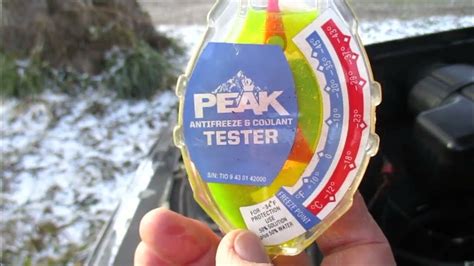Antifreeze: Preventative Maintenance You Can't Ignore
Antifreeze. The name itself conjures images of icy roads and the protection it offers your vehicle's engine during the harshest winter conditions. But its role extends far beyond simply preventing freezing. Proper antifreeze maintenance is crucial preventative maintenance that can save you from costly repairs and ensure your vehicle's longevity. Ignoring it is a gamble you shouldn't take. This comprehensive guide will explore the importance of antifreeze, its function beyond freezing protection, and how to ensure your vehicle's cooling system remains in optimal condition.
What is Antifreeze and Why is it Important?
Antifreeze, more accurately called coolant, is a crucial component of your vehicle's cooling system. It's a mixture of water and ethylene glycol (or propylene glycol in some cases), designed to prevent freezing in cold temperatures and boiling in hot temperatures. The ethylene glycol lowers the freezing point of the water, preventing ice formation that could crack engine blocks and damage other components. Conversely, it also raises the boiling point, preventing overheating and potential engine damage during summer months.
Beyond temperature regulation, coolant also acts as a corrosion inhibitor. The additives in the coolant protect the various metal components within your cooling system – including the radiator, engine block, water pump, and hoses – from rust and deterioration. This preventative measure significantly extends the lifespan of these vital parts.
What Happens if You Don't Change Your Antifreeze?
Neglecting antifreeze changes has serious consequences. Over time, the coolant's effectiveness diminishes. The corrosion inhibitors degrade, leaving metal components vulnerable to rust and damage. The coolant itself can also break down, potentially leading to clogs in the cooling system, reduced cooling efficiency, and ultimately, engine overheating. Overheating can cause catastrophic engine damage, leading to extremely costly repairs or even requiring a complete engine replacement.
How Often Should You Change Your Antifreeze?
The recommended frequency for antifreeze changes varies depending on the vehicle and the type of coolant used. However, a general guideline is to change your coolant every 2 to 3 years, or as recommended by your vehicle's manufacturer. Check your owner's manual for specific recommendations. Don't rely solely on mileage; time is a crucial factor in coolant degradation.
How to Tell if Your Antifreeze Needs Changing:
- Visual inspection: Check the coolant reservoir for discoloration. Fresh coolant is typically bright green, orange, or pink, depending on the type. If it's murky, brown, or rusty, it's time for a change.
- Testing the freeze point: Use a coolant tester to determine the freeze point of your coolant. If it's higher than recommended, it indicates the coolant needs replacing.
What are the Different Types of Antifreeze?
There are two primary types of antifreeze:
- Ethylene glycol: This is the most common type and offers excellent freeze and boil protection, as well as corrosion inhibition. However, it is toxic if ingested.
- Propylene glycol: This is a less toxic alternative to ethylene glycol and is often used in vehicles intended for food processing or other applications where toxicity is a major concern.
Always use the type of antifreeze recommended by your vehicle's manufacturer.
What are the signs of a failing cooling system?
- Overheating: This is a clear indicator that your cooling system is not functioning correctly. If your engine temperature gauge climbs into the red zone, pull over immediately and turn off the engine to prevent severe damage.
- Leaks: Check for leaks under your vehicle. Look for puddles of coolant, which may be green, orange, or pink.
- White smoke from the exhaust: This could indicate coolant is leaking into the engine cylinders.
- Sweet smell: Ethylene glycol has a slightly sweet odor. If you smell something sweet near your engine compartment, it could be a sign of a coolant leak.
How Much Does an Antifreeze Change Cost?
The cost of an antifreeze change varies depending on the location, the type of vehicle, and the labor costs. Generally, it’s a relatively inexpensive preventative maintenance procedure compared to the cost of engine repair or replacement necessitated by coolant failure.
Can I Change My Antifreeze Myself?
While some individuals are comfortable performing this task themselves, it's essential to understand the process involves working with hot fluids and potentially dangerous chemicals. If you lack experience, it's best to leave the job to a qualified mechanic. Improper procedures could result in leaks, spills, and further damage to the cooling system.
In conclusion, regular antifreeze changes are essential preventative maintenance that should not be overlooked. The relatively small cost and effort far outweigh the potential for catastrophic engine damage and significant repair bills. By staying proactive and attentive to the signs of a failing cooling system, you can protect your investment and enjoy worry-free driving.

